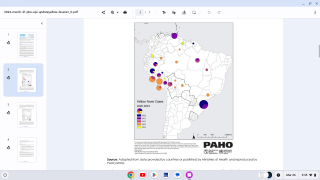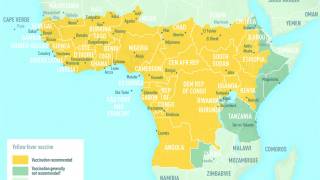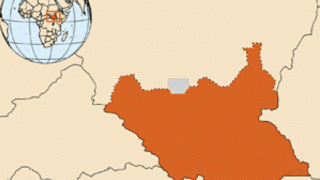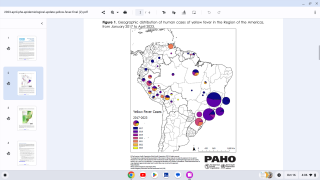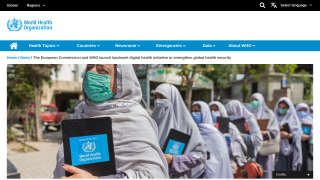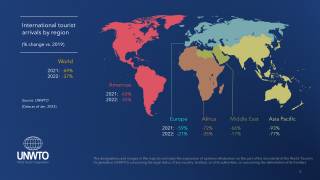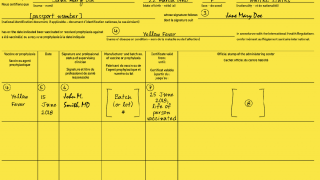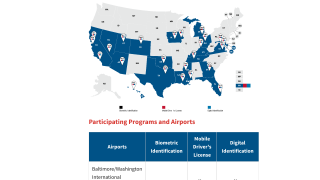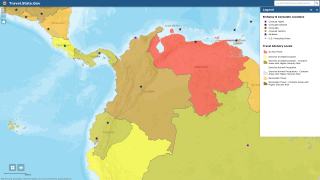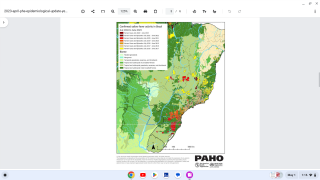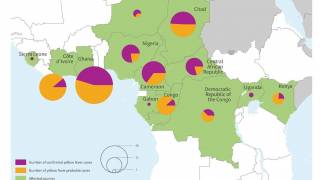CDC Expands Ethiopia Travel Vaccine Recommendations

In today’s globally connected world, disease threats can spread faster and more unpredictably than ever before.
In central Africa, the US Centers for Disease Control and Prevention (CDC)’s global health security efforts help Ethiopia improve its ability to prevent, detect, and respond to infectious disease outbreaks before they become epidemics that could affect global populations.
Since 2001, CDC has been collaborating with Ethiopia’s Federal Ministry of Health and other partners to address HIV, tuberculosis, malaria, and other infectious diseases.
These CDC efforts were updated on August 16, 2019, to enable this global partnership to make Ethiopia safer and more secure from infectious disease threats.
One way to limit disease outbreaks is by deploying vaccines.
Vaccines help prevent an estimated 2.5 million deaths among children under 5 years of age every year. However, one child dies every 20 seconds from a disease that could have been prevented by a vaccine.
The CDC provides technical and programmatic expertise to meet national immunization goals and international resolutions to eradicate polio, eliminate measles, and strengthen the national routine immunization program in Ethiopia.
Additionally, the CDC assists with the investigation of circulating vaccine-derived poliovirus cases and provides operational support for polio surveillance and supplementary immunization activities.
And, under the U.S. President’s Malaria Initiative, a CDC resident advisor has been assigned to Ethiopia to support the implementation of malaria prevention and control interventions.
As of 2018, the 10 leading cause of death in Ethiopia were:
- Neonatal disorders
- Diarrheal diseases
- Lower respiratory infections
- Tuberculosis
- Ischemic heart disease
- Stroke
- HIV/AIDS
- Cirrhosis
- Meningitis
- Protein-energy malnutrition
Most of these health conditions could have been prevented with innovative vaccines. That’s one reason the CDC says ‘visitors to Ethiopia should be up to date on vaccinations prior to arrival.’
As of August 20, 2019, the CDC recommends the following vaccines when traveling to Ethiopia:
Measles
- Infants (6 through 11 months old): 1 dose of measles-mumps-rubella (MMR) vaccine before travel. This dose does not count as the first dose in the routine childhood vaccination series.
- People 12 months old or older, with no evidence of immunity or no written documentation of any doses: 2 doses of MMR vaccine before travel. The 2 doses must be given 28 days apart.
- People 12 months old or older who have written documentation of 1 dose and no other evidence of immunity: 1 additional dose before travel, at least 28 days after the previous dose.
Polio
- If you were vaccinated against polio as a child but have never had a polio booster dose as an adult, you should get this booster dose. Adults need only one polio booster dose in their lives.
- If you were not completely vaccinated as a child or do not know your vaccination status, talk to your doctor about getting vaccinated.
Routine vaccines
- Make sure you are up-to-date on routine vaccines before every trip. These vaccines include the diphtheria-tetanus-pertussis vaccine, varicella (chickenpox) vaccine, polio vaccine, and annual influenza vaccination.
Yellow Fever vaccine
- The Yellow fever virus is a risk in certain parts of Ethiopia. In 2018, Ethiopia offered over 1 million yellow fever vaccinations to its population.
- The CDC recommends a yellow fever vaccine, such as Stamaril, for travelers 9 months of age or older, when visiting these areas.
- Yellow fever vaccine availability in the United States is currently limited. If you need to be vaccinated before your trip, you may need to travel some distance and schedule your appointment well in advance.
- The Ethiopian government requires proof of yellow fever vaccination if you are traveling from a country with risk of yellow fever, which does not include the USA.
Additionally, the CDC says ‘most’ Ethiopia visitors should consider the hepatitis A and typhoid vaccines.
For anyone departing from the USA, pre-departure vaccination services, related travel medications, and counseling appointments can be scheduled with a local pharmacy by visiting Vax-Before-Travel.
Recently, on August 21, 2019, the US Department of State expanded its Level 2 Travel Advisory for the Federal Democratic Republic of Ethiopia to include Level 3 and 4 warnings. For more information, please see the Travel Advisory.
Vaccines, like any medicine, can have side effects. You are encouraged to report vaccine side effects to the CDC.
Published by Vax-Before-Travel
Our Trust Standards: Medical Advisory Committee

